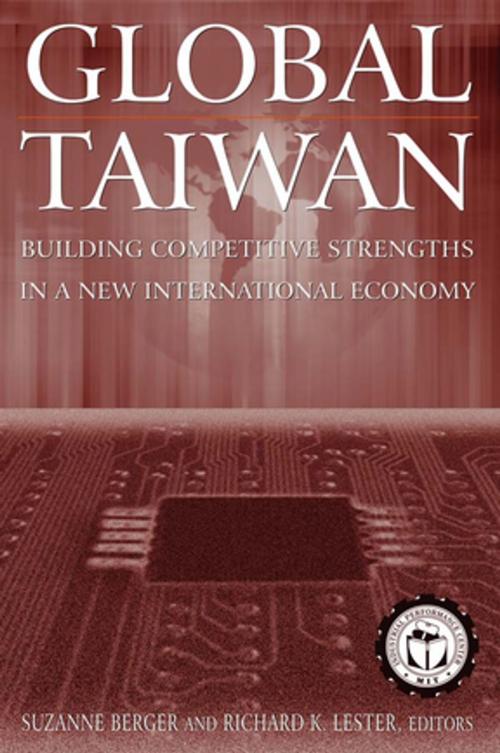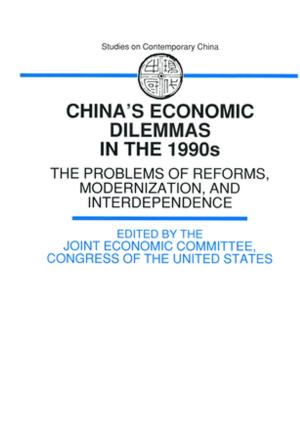Global Taiwan: Building Competitive Strengths in a New International Economy
Building Competitive Strengths in a New International Economy
Business & Finance, Marketing & Sales, Advertising & Promotion| Author: | Suzanne Berger, Richard K. Lester | ISBN: | 9781317469698 |
| Publisher: | Taylor and Francis | Publication: | February 12, 2015 |
| Imprint: | Routledge | Language: | English |
| Author: | Suzanne Berger, Richard K. Lester |
| ISBN: | 9781317469698 |
| Publisher: | Taylor and Francis |
| Publication: | February 12, 2015 |
| Imprint: | Routledge |
| Language: | English |
Global Taiwan examines the impact of globalization on the industry and economy of Taiwan since the spectacular growth of the 1990s. Drawing on hundreds of interviews with firms in Taiwan, China, the United States, Japan, Europe, and other areas, the book analyzes the strengths and weaknesses of Taiwanese firms at a time when they face new competition from powerful global leaders and new producers in China. The contributors cover topics of enormous importance for Taiwan as well as the rest of the world, including transformations in the international economy, technological advances that enabled modularization and fragmentation of the production system, contract manufacturers, regionalization, and links with Chinese industry. The book addresses such questions as: Can Taiwanese companies be maintained and expanded with the same corporate strategies and public policies as in the past? Can these strategies still work for other countries? If changes are required, what resources can be mobilized in the public and private sectors? As massive relocation of manufacturing and services moves plants and jobs to low-wage countries like China and India, what will remain at home in societies like Taiwan?
Global Taiwan examines the impact of globalization on the industry and economy of Taiwan since the spectacular growth of the 1990s. Drawing on hundreds of interviews with firms in Taiwan, China, the United States, Japan, Europe, and other areas, the book analyzes the strengths and weaknesses of Taiwanese firms at a time when they face new competition from powerful global leaders and new producers in China. The contributors cover topics of enormous importance for Taiwan as well as the rest of the world, including transformations in the international economy, technological advances that enabled modularization and fragmentation of the production system, contract manufacturers, regionalization, and links with Chinese industry. The book addresses such questions as: Can Taiwanese companies be maintained and expanded with the same corporate strategies and public policies as in the past? Can these strategies still work for other countries? If changes are required, what resources can be mobilized in the public and private sectors? As massive relocation of manufacturing and services moves plants and jobs to low-wage countries like China and India, what will remain at home in societies like Taiwan?















